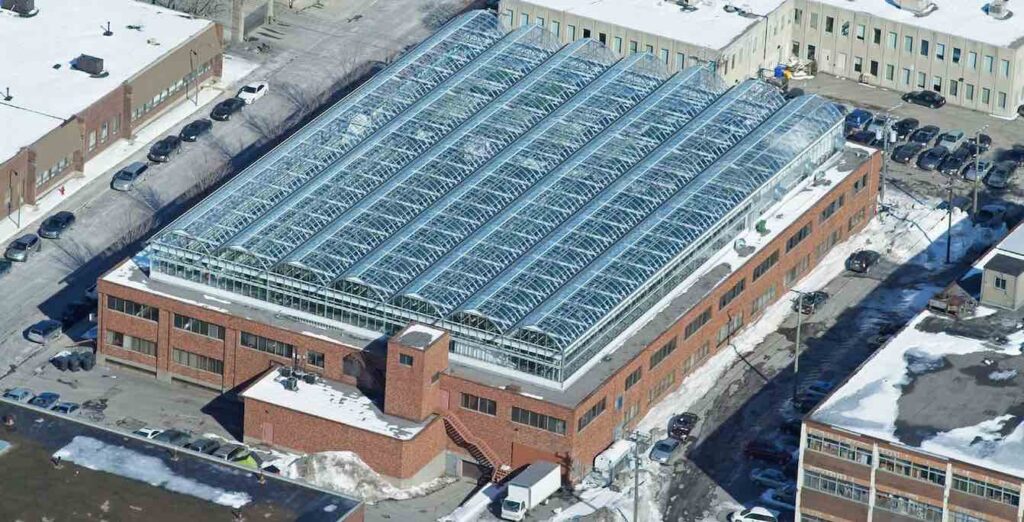A rooftop greenhouse in Montreal has become the largest of its kind, and can now produce enough food to feed nearly 2% of the city’s population even in winter.

Rooftop gardening is becoming very popular as a means of getting high-quality produce into the hearts of the world’s great cities, a method that has the double-advantage of cutting back on tailpipe emissions and spoilage from the otherwise necessary transportation of food.
RELATED: Scientists Hack Photosynthesis to Make Crops Produce More, But With Less Water
Launched in 2009, Lufa Farms now has four such rooftop gardens. The latest addition, built atop their own distribution center of 160,000 square feet (15,000 square meters), is about the size of three football fields, and cultivates 100 different varieties of fruits and vegetables using hydroponics.
Looking like something out of a Star Trek episode, hydroponic gardens utilize pipes in which the roots of the plant can dangle freely, and where a steam bathes them in essential nutrients and water—eliminating the need for soil entirely.
While headquartered in Canada, Lufa Farms was founded in 2009 by Lebanese-born Mohamed Hage and his American wife Lauren Rathmell from Vermont.
Lufa Farms spokesperson Thibault Sorret explains to Phys.org that they produce food next to where most people live, and in a sustainable way, which some experts believe is the future of agriculture.
“We are now able to feed almost two percent of Montreal with our greenhouses and our partner farms,” says Sorret.

“The advantage of being on a roof is that you recover a lot of energy from the bottom of the building,” he adds, noting that they can save a significant amount on heating during the notoriously cold Quebec winters.
Savings can also be found in the water-use department where Lufa Farms has a rainwater collection system that reduces time spent running taps by 90%, while ladybugs, wasps, and bumblebees work in tandem as both pollinators and pest control.
These energy-efficient and environmentally friendly practices are on top of a year-on-year profitable business that employs 500 people and sells $30 produce baskets for 20,000 families a week—all while running a distribution service under the greenhouse that connects local artisan food makers that produce things like fresh pasta to Montreal houses with home delivery.
It’s the kind of service that’s exploding in popularity in both the restaurant and grocery industry around the world, and Lufa is now capitalizing on that to export its model to cities across the U.S. and Canada. That’s good food news for everyone.
SHARE This Exciting Development With Your Friends On Social Media…




















